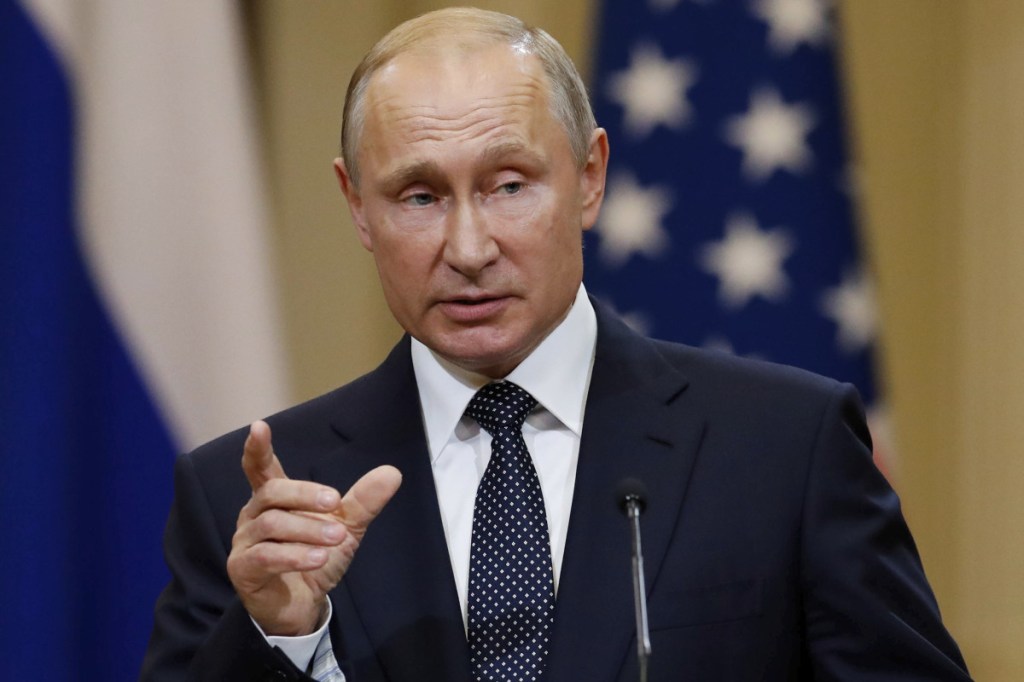President Donald Trump signed an executive order last week promising to punish anyone attempting to meddle in U.S. elections, including with “measures that could be capable of devastating an interfering country’s economy,” according to an administration description. For a presidency marked by an inconsistent stance on Russia, it was yet another shift in tone. That inconsistency explains why this warning shot against Russia and other foreign adversaries, while welcome, is insufficient. Congress also should act.
The executive order charges the U.S. intelligence community with determining whether foreign entities — people, organizations, governments — have tried to interfere, either by direct cyberattacks on election infrastructure or by spreading propaganda. Findings would be forwarded to other government agencies, which would apply initial automatic sanctions blocking any assets bad actors have under U.S. jurisdiction. The Treasury Department could apply further sanctions of varying bite, calibrated to the severity of the intrusion.
Deterrence is the best defense against future meddling. Eliminating all vulnerabilities in the nation’s sprawling electoral infrastructure, which varies widely across 50 states and sub-state jurisdictions, is impossible. The most effective policy would involve a credible warning of massive retaliation. But credibility is in short supply for this administration, particularly after Trump’s obsequious performance before Russian President Vladimir Putin in Helsinki.
There are two bipartisan Senate proposals that, if passed, would send a stronger message. The bills would insist on tougher automatic sanctions, such as on the sovereign debt of countries sponsoring election interference or on economic sectors vital to those countries’ economies. Other ideas include requiring more reporting on big real estate transactions that might mask foreign money laundering and bolstering federal law enforcement’s ability to crack down on bad cyber-actors. With less than two months before the November election, Congress should act immediately.
If Trump did not have a long history of playing down Russian election interference and sidling up to Putin, his new order might be enough to deter future attacks. But no one watching this administration, including foreign actors contemplating future operations, can be confident that Trump would respond with more than minor sanctions. Congress should step in to send a clear message to the world: Any nation seeking to interfere in U.S. elections will pay a price.
Editorial by the Miami Herald
Visit Miami Herald at www.miamiherald.com
Distributed by Tribune Content Agency, LLC.
Send questions/comments to the editors.



Comments are no longer available on this story